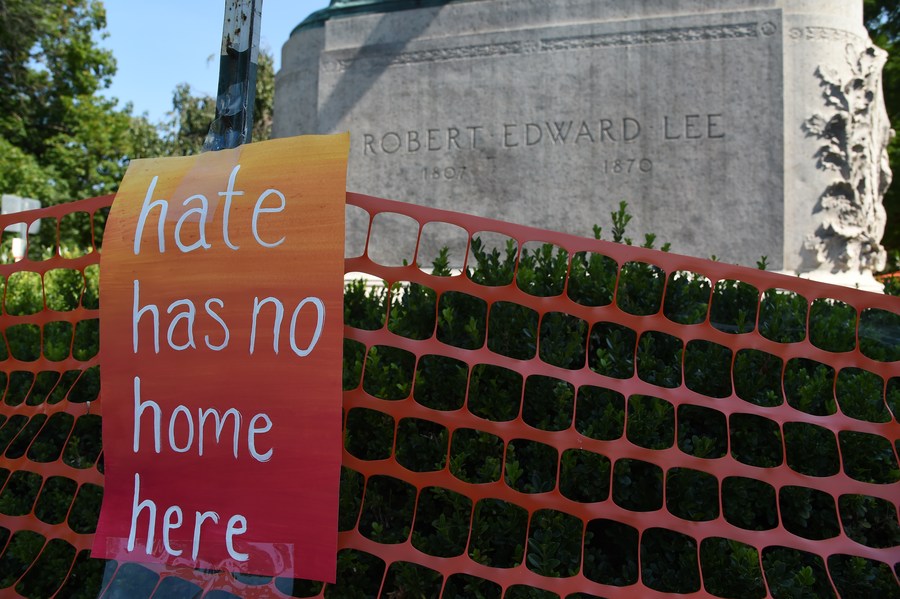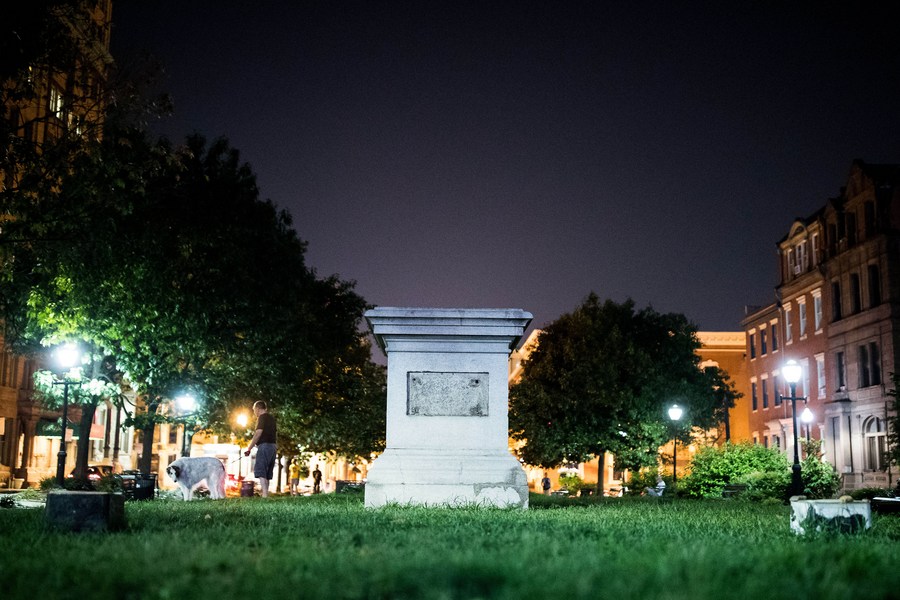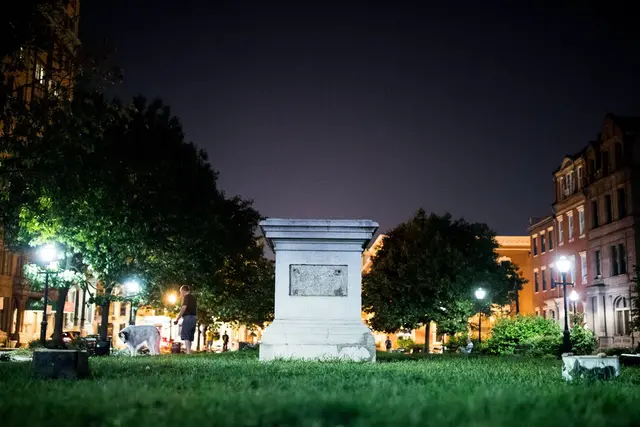Video: Statues of Christopher Columbus were vandalized in Miami, Boston and other locations across the United States as George Floyd's death reinvigorated an international push to remove sculptures commemorating colonizers and slavers amid anti-racism protests. (Xinhua)
"Monuments to men who advocated cruelty and barbarism to achieve such a plainly racist end are a grotesque affront to these ideals. Their statues pay homage to hate, not heritage. They must be removed," writes Nancy Pelosi.
WASHINGTON, June 11 (Xinhua) -- Two congressional lawmakers on Thursday introduced a bill that would remove Confederate statues from the U.S. Capitol.
The bill, from Congresswoman Barbara Lee and Congressman Bennie Thompson, came after nationwide demonstrations against police brutality and racial profiling, triggered by George Floyd's death in police custody.
"Americans in all 50 states and millions of people around the world are marching to protest racism and police violence directed at people of color, and yet across the country, Confederate statues and monuments still pay tribute to white supremacy and slavery in public spaces," Lee said in a statement.
Thompson said "we do this in a spirit of racial reconciliation and healing."
Demonstrators hold banners during a protest demanding the removal of a Confederate statue in Houston, the United States. on Aug. 19, 2017. (Xinhua/Scott Julian) (zf)
There are currently 11 statues of people who served in the Confederacy, either as officials or soldiers, displayed in the Capitol complex.
The statues are all part of the National Statuary Hall Collection, created in 1864 with a law that allows states to select two statues of deceased individuals to be displayed in the U.S. Capitol.
The legislation from the two Democrats would remove all of the Confederate statues in the collection within 120 days. The statues could either be reclaimed by the states or given to the Smithsonian Institution, a U.S. museum and research complex.

A poster saying "hate has no home here" is seen in Charlottesville, Virginia, the United States, on Aug. 10, 2018. A year after a white nationalist rally traumatized Charlottesville, in the U.S. state of Virginia, with riots and blood, the city is still healing from the shock. On Aug. 12, 2017, white supremacists and members of other hate groups gathered in Charlottesville for a self-styled "Unite the Right" rally to protest against the city's decision to remove a Confederate statue before clashing violently with counter-protesters. After the riots were dispersed, an Ohio man associated with white nationalist groups drove a car into the crowd of counter-protesters who were marching peacefully, killing 32-year-old Heather Heyer and injuring 19 others. (Xinhua/Yang Chenglin)
House Speaker Nancy Pelosi, a Democrat, on Wednesday called for the removal of the statues.
"Monuments to men who advocated cruelty and barbarism to achieve such a plainly racist end are a grotesque affront to these ideals. Their statues pay homage to hate, not heritage. They must be removed," Pelosi wrote in a letter to the Joint Committee of Congress on the Library.
Senate Majority Leader Mitch McConnell, a Republican, said Thursday that a decision on Confederate statues in the Capitol should be left up to the states.
"Every state is allowed two statues, they can trade them out at any time... a number of states are trading them out now. But I think that's the appropriate way to deal with the statue issue. The states make that decision," McConnell told reporters.

The pedestal where the Roger B. Taney Statue stood is seen after being removed in Baltimore, Maryland, the United States, on Aug. 16, 2017. Four confederate statues were taken down in Baltimore in the early hours of Wednesday, as the city moved swiftly to avoid violent protests similar to the ones Charlottesville had seen over the weekend. (Xinhua/Shen Ting)
U.S. President Donald Trump has defended allowing Confederate statues and buildings named after Confederate officials to remain in place.
On Wednesday, Trump tweeted he "will not even consider" renaming U.S. Army bases that were named for Confederate figures despite openness from top Pentagon officials to the idea. ■
 简体中文
简体中文












